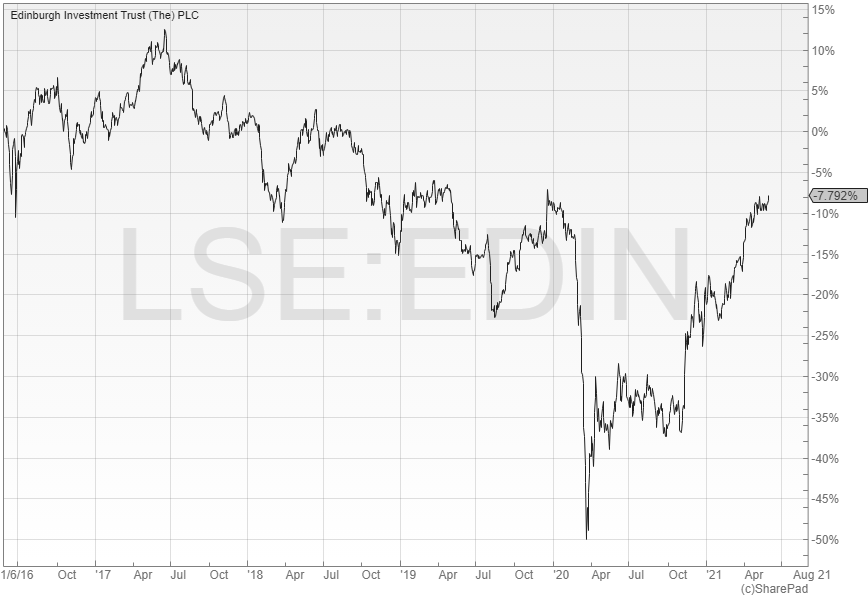Impressive turnaround at the Edinburgh Investment Trust

Edinburgh Investment Trust’s first full year’s results under new manager James De Uphaugh show clear outperformance and a narrowing of the discount.
Edinburgh Investment Trust (LON:EDIN) had struggled for years under Invesco’s Mark Barnett, so it was no great surprise when the board appointed Majedie’s James De Uphaugh to take over last March. It was fortunate timing with the transition period coinciding with the onset of the pandemic.
In its final results for the year to 31 March, the UK equity income fund made a NAV total return of 34.8%, which was well ahead of the 26.7% recorded by the FTSE All-Share as markets recovered from their March 2020 lows. The share price return was even stronger at 46.4% due to the narrowing of the discount.
Turnover was much higher than normal at 39% as the manager re-positioned the portfolio and reacted to the rapidly changing events during the year. Significant additions included Standard Chartered and Acsential, while legacy holdings in Glaxo, Legal & General and Barrick Gold were sold or reduced to increase the pro-cyclical tilt following the development of the first vaccine last November.
Plenty of upside potential
De Uphaugh believes that the UK is rich in stocks that are exceptionally well-placed both operationally and in valuation terms. In order to take advantage he uses a flexible total return approach with the concentrated 50-stock portfolio consisting of a mix of growth, value and recovery names.
Despite the recent strong performance, many British companies continue to trade at a discount to their international peers. It is possible that the successful vaccine rollout and the fact that Brexit is now behind us could enable the valuation gap to close, but the focus continues to be on fundamental research with the aim of identifying the stocks with the greatest upside potential.
Many of the largest positions are regarded as leaders in their fields and are likely to emerge from the crisis stronger. In order to protect capital, the manager considers the potential downside risk for each holding and scales the level of investment accordingly.
New starting point for the dividend
Lots of UK companies reduced their dividends during the pandemic and because of this the board decided to rebase the fund’s underlying distribution to 24 pence per share, a level from which it should be able to achieve sustainable growth ahead of inflation. This gives the shares a prospective yield of 3.75%, which is marginally below the four percent average from the UK equity income sector.
A special dividend of 4.65 pence has also been declared in respect of the year ended 31 March. It will be paid from the revenue reserves with the ex-div date being 24 June and will maintain the annual income in line with the previous year’s so as to protect investors.
A 12-month period is too short to properly assess the performance of the new manager, but it is reassuring to see that the fund has continued to outpace the index since the end of its financial year. The broker Investec has recently issued a buy recommendation with the shares available on a 4.5% discount to NAV.

Comments (0)